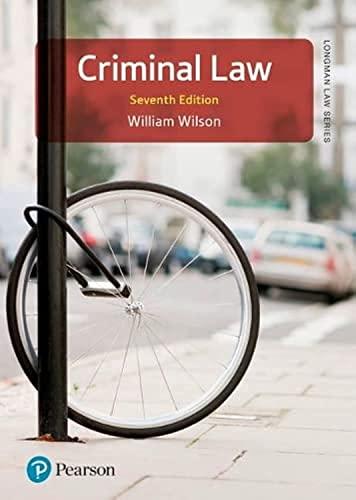Question
1.Which of the following is not required by legislation governing the collective bargaining process? a.Either party can give notice to commence bargaining. b.Parties must make
1.Which of the following is not required by legislation governing the collective bargaining process?
a.Either party can give notice to commence bargaining.
b.Parties must make every reasonable effort to reach an agreement.
c.The agreement must be ratified by both employees and employers.
d.Management must agree to the union's terms.
e.Parties must bargain in good faith.
2.Which of the following is not a form of job action?
a.Work to rule
b.Certification
c.Lockout
d.Strike
e.Picketing
3.In which of the following disputes do the workers have the legal right to strike?
a.A dispute between the union and the employer as to what terms should be included in a new collective agreement.
b.A disagreement over the meaning or interpretation of a provision that has been included in a collective agreement.
c.A dispute between two unions as to which union should represent a particular group of employees.
d.A dispute between the workers and the management because management will not recognize the union as the bargaining agent.
e.A dispute in which the employer unjustly disciplines or fires an employee for union activities.
Step by Step Solution
There are 3 Steps involved in it
Step: 1

Get Instant Access to Expert-Tailored Solutions
See step-by-step solutions with expert insights and AI powered tools for academic success
Step: 2

Step: 3

Ace Your Homework with AI
Get the answers you need in no time with our AI-driven, step-by-step assistance
Get Started


